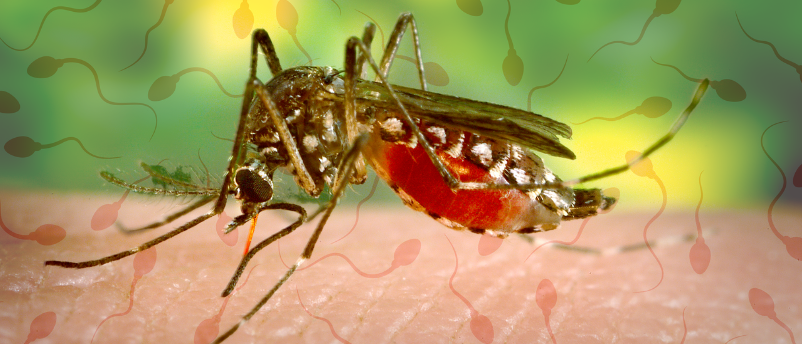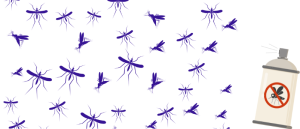
BioTechniques News
Aisha Al-Janabi

Researchers have analyzed proteins in mosquito sperm to find an environmentally friendly approach to managing these insects.
Whilst mosquitos are the deadliest animal on Earth, they play an important role in the food chain and most ecologists would oppose the idea of completely eradicating them. Researchers at the University of California (CA, USA) hope their ambition of deactivating mosquito sperm could lead to a more environmentally friendly path of controlling, not eradicating, the mosquito population.
“During mating, mosquitoes couple tail to tail, and the males transfer sperm into the female reproductive tract. It can be stored there awhile, but it still has to get from point A to point B to complete fertilization,” explained Cathy Thaler, the first author of the study.
Essential to this fertilization process are specialized proteins secreted during ejaculation that activate the sperm flagella to power their movement, enabling sperm to move and penetrate the eggs. Without these proteins, the sperm would remain immotile and eventually degrade. The team has previously found that the sperm also need calcium when they enter the reproductive tract in order to power their forward movement.
 Blood-infused hydrogel deceives mosquitoes in behavior studies
Blood-infused hydrogel deceives mosquitoes in behavior studies
Mosquitoes might be small, but they most certainly are mighty with their ability to transmit deadly diseases. A 3D-printed blood-infused hydrogel patch could eliminate the need for live volunteers to study how mosquitoes transmit disease.
The researchers focused on the Culex genus, the common house mosquito that transmits the West Nile Virus and encephalitis. They isolated around 200 male mosquitos and extracted enough sperm from their reproductive tracts to analyze and identify the proteins present using mass spectrometry. “Now we can look into the completed protein profile we’ve created, find the calcium channel proteins, and design experiments to target these channels,” explained Richard Cardullo, the corresponding author.
Immobilizing sperm would be 100% effective at preventing reproduction from treated mosquitos, which would be used to change the proportion of fertile to infertile males in the population, thereby offering a method of controlling the population without eradicating it entirely. This approach could control mosquito populations without the toxic side effects that arise with other methods, such as spraying pesticides that unintentionally harm other animals and kill insects other than mosquitos.
The research group hopes their findings on sperm motility regulators in Culex mosquitos could be applied to other species of mosquitoes. This could even have implications for human fertility.
“Many cells have flagella, or tails, including human respiratory cells as well as cells in our guts. What we learn in one system such as mosquitos, can translate to others,” explained Cardullo, who has spent his career studying mammalian sperm with the goal of developing a male contraceptive. So, this research into mosquito sperm could lead to a male contraceptive as well as fertility treatments for humans.
The post Immobilizing mosquito sperm could be the key to controlling mosquito populations appeared first on BioTechniques.
Full BioTechniques Article here
Powered by WPeMatico
